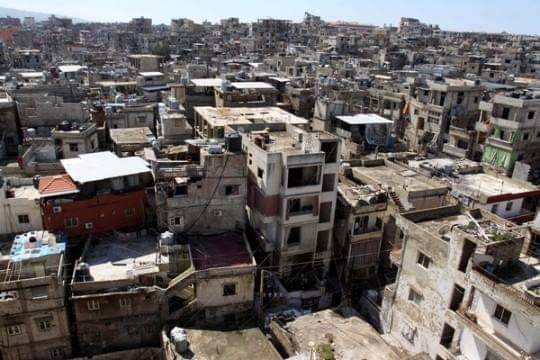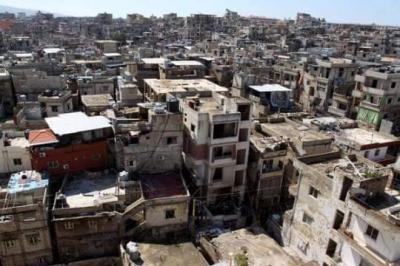The security file has once again come to the forefront through the Palestinian refugee camps in Lebanon, as the assassination of a senior officer from the Fatah movement inside the Ain al-Hilweh camp has revived fears of a resurgence of killings and attempts to disrupt the Lebanese security situation. Following the assassination of the national security liaison officer of the Palestinian Fatah movement, Major Said Alaa al-Din Al-Assous, in the camp, Fatah leader Munir al-Maqdah stated that he had toured the neighborhoods of Ain al-Hilweh with several senior Fatah officers in an effort to calm the atmosphere and reduce tensions.
Al-Maqdah confirmed to Asharq Al-Awsat that Palestinian factions are unified in rejecting this crime and preventing the return of assassinations to the camps. He announced a "complete coordination with the Lebanese Army intelligence to provide the necessary information to identify the perpetrators and bring them to trial as soon as possible," considering that "the fingerprints of this assassination are not far from the hands of the Israeli enemy who seeks to undermine the security of the camps and Lebanon as a whole at this sensitive time." He emphasized the unity of the Palestinian stance at this time and anticipated that "the threads of the crime will become clear soon, based on the mutual cooperation between Palestinians and Lebanese."
The incident has drawn the attention of Lebanese security forces, which have mobilized to contain the situation and prevent its escalation. A prominent security source told Asharq Al-Awsat that "the southern army intelligence has mobilized all its resources to contain the situation and defuse the security tension." He mentioned, "There is diligent work on unraveling the threads of this crime to apprehend the perpetrators." He confirmed that security apparatuses "have begun their investigations in cooperation with Palestinian factions and dismantled surveillance cameras to analyze their content and identify the assailants."
The security source noted that "the army and Lebanese security forces are making significant efforts, focusing now on stabilizing the situation and containing the repercussions of the incident, ensuring that things do not escalate into internal purges or lead to a security explosion that no one desires."
Palestinian sources indicated that Major Al-Assous "was assassinated while performing his evening prayers at a friend's house located in the vegetable market." They added that "a masked gunman stormed the house and opened fire on Al-Assous, who was praying with the homeowner and one of his companions, hitting him directly in the neck and head, and fled to an unknown location." They confirmed that the conditions of the assassination "indicate that the victim was closely monitored, and that more than one person executed this crime with precision."
For his part, Palestinian Central Council member Haitham Zaiter placed this assassination within "the attempts to ignite Palestinian-Palestinian strife, particularly as the crime occurred against the backdrop of the calm that the Palestinian camps in Lebanon enjoy." In a statement to Asharq Al-Awsat, he regarded the targeting of Al-Assous as a "direct assault on the camp's security first, a targeting of the Fatah movement at this stage second, and an open attempt to drag Palestinian factions into internal strife and conflict."
Zaiter noted the implications of choosing Al-Assous in this manner, calling it "a highly significant message as the martyr was a liaison officer with a wide network of relations with the Palestinian factions and Islamic forces present in Ain al-Hilweh and other camps, as well as strong ties with Lebanese authorities responsible for the security of the camps and their surroundings."
The precarious security situation in Palestinian camps raises questions about whether security within them is a means to ignite the Lebanese arena. Zaiter stressed the need to determine the identities of the perpetrators and arrest them to prevent tensions, and he highlighted the risk associated with the timing of the crime coinciding with assassinations carried out by Israel in Gaza and Nablus, suggesting inquiries into the motives for tension in the camps in light of security reports about Palestinian and security assassinations aimed at stirring up tensions in Lebanon ahead of the presidential elections.




